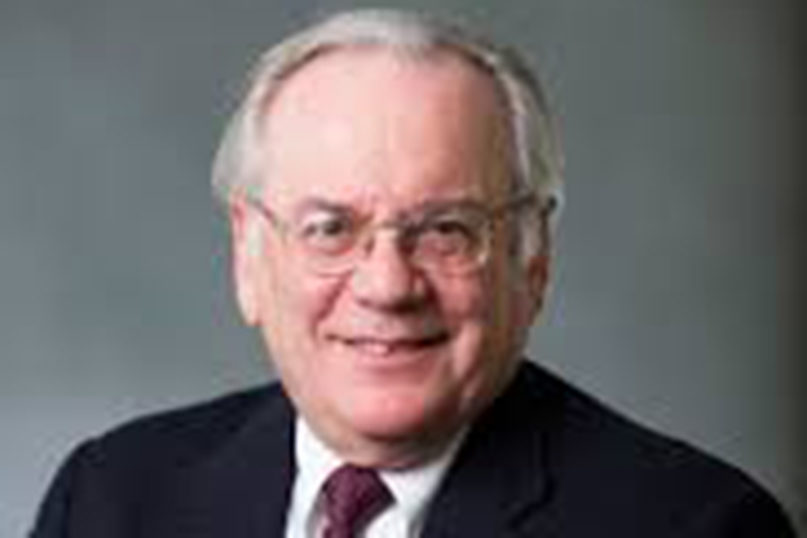
Israeli scientists are making medical discoveries in the field of cancer research every day. Now all they need is funding.
By Stacey Dresner
NEW YORK – Israeli scientists working on cancer treatments have the potential to change the world. Just ask Dr. Mark A. Israel.
“Cancer research has never been more exciting or promising – and that is particularly true in Israel,” says Dr. Israel, who just wrapped up his first year of service as national executive director of the Israel Cancer Research Fund (ICFR).
That is, he is quick to point out, Israel is home to an array of talented scientists currently engaged in cutting-edge research and in making medical discoveries in the cancer treatment field. All they need is adequate funding to continue their groundbreaking, potentially life-altering, work.
And that is Dr. Israel’s goal: to make sure scientists in Israel receive those funds through (ICRF), the largest nonprofit organization dedicated solely to funding cancer research in Israel.
Dr. Israel, a pediatric oncologist, translational scientist and nationally recognized leader in cancer research, was named to his post at ICRF last year after serving as a professor in the Department of Pediatrics, Medicine, and Molecular and Systems Biology at the Geisel School of Medicine at Dartmouth College. From 2001 to 2016, he served as the director of Dartmouth’s National Cancer Institute-designated Comprehensive Cancer Center, the Norris Cotton Cancer Center. He has organized Dartmouth’s cancer research efforts with an annual budget in excess of $50 million and oversaw the cancer center’s development efforts, raising as much as $10 million annually.
Before joining Dartmouth, Dr. Israel was professor in the Departments of Neurological Surgery and Pediatrics at the University of California-San Francisco (UCSF), where he also directed the Preuss Laboratory of Molecular Neuro-Oncology. Earlier in his career, Dr. Israel held several positions at the National Cancer Institute.
For the past 12 years, Dr. Israel has been involved with the ICRF as a volunteer member of its Scientific Review Panel and the chair of the panel that evaluates translational cancer research proposals.
He has served on numerous boards, including several U.S. National Cancer Institute-designated Comprehensive Cancer Center scientific advisory boards. He is the recipient of several awards and honors, including the C. Everett Koop Courage Award and the U.S. Public Health Service Commendations Medal, among others.
Recently, Dr. Israel spoke to the Jewish Ledger about ICRF and the innovative cancer research coming out of Israel.
JEWISH LEDGER (JL): What is your mission as national executive director of the ICRF?
MARK ISRAEL (MI): My goal is to bring my 16 years of experience as the cancer center director at Dartmouth medical school to ICRF – and to bring scientific leadership and fundraising to ICRF so we might better resource Israeli cancer scientists, whose impact on cancer I believe is less than it could be if they had better resources.
A key part of my responsibilities is to provide leadership for the fundraisers who talk to donors and who facilitate the funding of grants, and also to raise funds myself from both individuals who are excited about impacting cancer research worldwide, while also building Israeli cancer science to the extent that it helps to keep Israeli scientists in Israel. And so, it also contributes to building the state of Israel.
I think [ICRF] [offers supporters] a dual punch: they have the opportunity to support cancer research that helps the entire world, and they have the opportunity to support Israeli scientists in Israel, helping to build the state of Israel. It is a wonderful cause.
JL: For many years you served on the panel that determined which Israeli projects received funding from ICRF. What was it like getting to see all of these cutting-edge ideas coming out of Israeli laboratories?
MI: While I was a cancer center director, and had a scientific laboratory myself as well as leading a large clinical enterprise, I served on the ICRF Scientific Review Panel, 50 or so North American scientists who come together to evaluate annually about 150 proposals from Israeli scientists for funding. So as peer reviewers, these leading scientists here in North America, prioritize the grants, then the ICRF aligns funding with the prioritization of the scientific review.
I’ve done this for many years, and I’ve felt for a very long time that there was remarkable and outstanding research being conducted in Israel which was very much in need of additional funding – that there were many grants that were worthy to be funded. When the opportunity to come to ICRF came along, its seemed like an opportunity for me to combine my interests in supporting science in general with supporting science in Israel.
JL: We hear so much about cancer research and treatments coming out of Israel. What is it about Israeli scientists that makes them so ahead of the pack in terms of cancer research?
MI: I think one of the reasons that I am committed to resourcing and engaging the ongoing cancer research effort in Israel is that I think it has much greater potential. And, I believe that potential comes from the highly competitive, outstanding individuals who bring to their work in cancer research the sort of commitment, grit, focus and “can-do-it-ness“ attitude that characterizes so much of what went on during the establishment of the state of Israel, and what goes on today to maintain the state of Israel. These are the characteristics of the scientific enterprise there that makes it particularly special.
JL: We know there are so many different kinds of cancer and that one main cure is probably not going to happen. But in your opinion, is Israel where a cure or cures for cancer will come from?
MI: You touched on something that’s really important and that is that cancer is probably thousands of different diseases, so there is not going to be one cure. But there is also almost universal agreement that there are so many aspects of cancer that are not being adequately addressed – things like cancer prevention, diagnosis, treatment, follow-up on long-term side effects of both cancer and its treatment. I believe that, if properly resourced, Israel can make a huge impact in all of these areas. My goal – my vision – is that every month some really important, impactful discovery will come out of Israel that will affect all of mankind and Israel will become recognized in the area of cancer research that it has in, say, cyber security or defense, or desalination or drip irrigation.
JL: You mentioned cancer prevention. Is that something that Israel scientists are also working on?
MI: I would say that they definitely are. The key discoveries in how to prevent cancer will come from understanding how cancer arises and Israeli scientists are particularly strong in understanding the biologic mechanism that undermines the development of cancer.
JL: Do you think the rest of the world is aware of the medical treatments and advancements coming out of Israel? Should there be more marketing or education about what is going on in Israeli laboratories in terms of cancer research?
MI: I think as these discoveries have an ever greater impact and transform peoples’ lives, the marketing will take care of itself. I really believe that. So, while it is important to keep this in front of the world stage – and I’m deeply committed to participating in that effort – I do think that momentous, impactful discoveries speak for themselves.
It’s true [people] may not recognize [cancer treatments] are from Israel, but as they learn more about what drugs they are taking or about new technologies, they will understand Israel’s contribution to medical science and to civilization.
JL: What’s next in terms of cancer treatment? Are there any new cancer treatments coming out of Israel that you can share with us?
MI: I think the two big areas of cancer research where we should look for new breakthrough transformational discoveries are in immunotherapy and in targeted therapy. There is a lot of research going on in Israel in both of these areas. It is important that people realize that the time from the discovery of a therapeutic possibility to a new therapy is a decade or more. So while we all want to celebrate that process, it is a challenge to relate the actual outcome of a grant that seeks to define the basis for cancer or identify a new therapeutic target with an actual treatment. In fact, Israeli scientists have contributed to quite a few noteworthy and important currently used therapies, and we can definitely expect that they will continue to do so as they work in these areas.







 Southern New England Jewish Ledger
Southern New England Jewish Ledger














